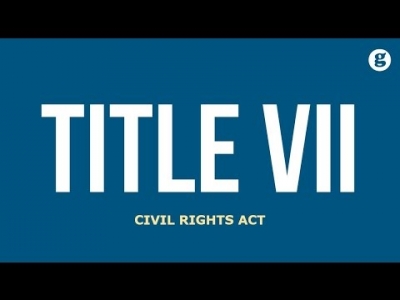From a Litigators Desk: Managing a Non-Performing “Partner”
Written by Thomas P. Donnelly
Thousands of businesses across the United States fall within the definition of what is commonly referred to as “small business”. Many of these small business are formed by two “friends” with compatible skill sets and both possessing knowledge of a particular industry. Business owners commonly refer to their co-owners as “partners”. As the business and its’ complexity grows, deficiencies in performance or capacity on the part of one partner may be exposed. Alternatively, the absence of immediate success can cause a less patient partner to seek other opportunities and abandon the work that is necessary for the collective good. What starts as a promising partnership can quickly turn sour. Here are a few tips on moving forward:
1. Agree on material issues ahead of time. It goes without saying that a written agreement which contemplates and addresses material issues benefits everyone. Terms frequently addressed in such agreements include the relative duties of the parties, corporate officers, duties of directors and financial matters. If shareholders/partners/members are required to devote substantially all of their time to the venture, the agreement must so state. Similarly, if shareholders/partners/members can be required to contribute capital to the business, the prevailing agreement must so state. Agreed upon rights and remedies upon abandonment of functions within the business by a shareholder/partner/member can provide the road map for resolution and expedite transition.
2. Change terms of employment. An option which may be available to a shareholder/partner/member is the exercise of corporate power to change terms of employment with respect to the non-performing shareholder/partner/member. While a founding shareholder/partner/member may arguably have certain rights to continued employment, such guarantees are limited and may not preclude a change in terms when faced with non-performance or abandonment. Exercise of corporate power does not come without risk and any change in employment terms is almost always alleged as part of a minority shareholder oppression claim.
3. Offer a buy-out. Certainly the cleanest and most efficient means to end an unproductive arrangement quickly is to acquire the non-performing shareholder/partner/member’s interest in the business by the payment of money. Of course, such an agreement is not always financially available. Moreover, a voluntary transfer necessarily implicates that that non-performing shareholder/partner/member agree. Issues of valuation, income streams, indemnification and restrictions against competition can complicate any potential buy-out.
4. Sell the business. Often the solution to a disagreement on partner performance is a sale of the business with a corresponding post sale employment agreement for the performing shareholder/partner/member. Money is a powerful motivator. A sale generates money in a lump sum which can induce a shareholder/partner/member to forego the ongoing income stream that results from future operations. Certainly, control over the sale process, including the legal right to effectuate a sale by virtue of agreement or corporate control, are essential factors for evaluation.
5. Dissolve and start something new. As a matter of last resort, dissolution of the entity may be the only way to gain freedom from a non-performing shareholder/partner/member. The Business Corporations Law provides a mechanism for dissolution. Provided the requirements can be met, a shareholders/partners/member may seek judicial dissolution of the entity essentially forcing a judicial sale. An important aspect of dissolution is relief from fiduciary duties owed to the business and minority owners. Dissolution can be a complicated and expensive proposition and very disruptive to ongoing business operations but remains a viable strategy when business owners can no longer work together but also cannot agree on separation.
Supreme Court Finds Title VII’S Requirement to File a Charge of Discrimination is not Jurisdictional
Written by Patricia Collins
Reprinted with permission from the June 21st edition of The Legal Intelligencer. (c) 2019 ALM Media Properties. Further duplication without permission is prohibited.
In Fort Bend County v. Davis, 587 U.S. ___ (2019), the Court held that the requirement that a plaintiff in an employment discrimination case brought under Title VII, 42 U.S.C. § 2000e, et seq, file a charge of discrimination with the Equal Employment Opportunity Commission (“EEOC”) prior to filing a complaint in court is a procedural and not a jurisdiction requirement. Therefore, an employer’s failure to assert the absence of an appropriate charge of discrimination in a motion to dismiss results in a waiver of the defense. The Supreme Court’s decision resolves a split in the circuits regarding whether the requirement is jurisdictional, and highlighted the importance of the charge of discrimination and the motion to dismiss in employment discrimination cases.
Commercial general liability (CGL) insurance policies provide coverage to businesses for liability that may arise from property damage, bodily injury, and personal and advertising injury. CGL policies are complex, often involving a variety of exclusions, conditions and endorsements. It can sometimes be difficult to determine whether the CGL policy provides coverage for a specific loss. The coverage decision is crucial since it determines in the first instance, whether the insurer pays the cost of the legal defense and, secondly, whether the insurer will pay any judgment that might be rendered.
AMM attorneys have extensive experience in navigating CGL coverage disputes and the complicated CGL insurance policies from which they arise. We are frequently retained to interpret the language of these policies to provide opinions and if necessary, to litigate in court in Pennsylvania and in other states throughout the nation, to seek a judicial resolution of what are often complex coverage issues.
Some of the issues with which our Insurance Coverage Practice Group has grappled are:
- Whether an Insurer has a duty to defend its insured;
- Whether an Insurer has a duty to indemnify, or pay a judgment entered against its insured;
- The Insurer’s right to audit its insured and assess an additional premium;
- Analysis of tenders for defense and/or indemnity by contractors and subcontractors on an additional insured and insured contract basis;
- What policy limits apply and whether they are excess or pro rata;
- Whether a loss falls within the:
- Expected or Intended Injury Exclusion;
- Contractual Liability Exclusion
- Liquor Liability Exclusion
- Employer’s Liability Exclusion
- Pollution Exclusion
- Aircraft, Auto or Watercraft Exclusion
- Damage to Property Exclusion
- Damage to Your Work Exclusion
- Whether a loss is covered under the Products-Completed Operations Hazard
- Whether a loss is covered under the Personal and Advertising Injury coverage.
Founding Partner William Antheil of Antheil Maslow & MacMinn, LLP received the Pennsylvania Bar Association 50-Year Member Award at the Association’s Annual meeting on May 17th. “It is hard to believe how much time has gone by since I first walked up Court Street in Doylestown. There have been many changes in how lawyers do their work, but the core values of client focused service and advocacy have endured. It has been my good fortune to do work that I love with and for people I respect” said Antheil of his many years in the Central Bucks County legal community. William Antheil practices Estate Planning and Administration and Business Law at Antheil Maslow & MacMinn in Doylestown, Pennsylvania.
A high business “tide” does not necessarily float all boats. Often, when business is good and profits increasing, a business owner’s desire to share those increasing profits with an underperforming partner can create an irreconcilable divide; particularly in the case of a partner not intimately involved in the day to day operations of the business. Similarly, more difficult economic times stress cash flow and may motivate a performing partner to explore options to decrease or eliminate that portion of the business income flowing to those performing at a lower level. Of course, the lesser performing partner generally adopts a contrary perspective. In either case, the divergence between two or more partners can render the status quo unacceptable and threaten the business as a going concern.
In approaching disputes among shareholders several factors must be considered. First, what are the respective goals of the parties? Certainly, the long term goal of extracting the most gain in income or the value of the investment is the goal of all the parties, but short terms strategies can have a dramatic and sometimes unintended consequence. Second, what does the controlling agreement, if any, provide in terms of a basis to remove or force a sale of a partner’s interest? Significantly, there is no statutory right or method for the involuntary removal of a shareholder (arguably, such a remedy may be available in a Partnership or Limited Liability Company setting) Third, what is the long term impact of the potential short term strategies not only on the business but also on the individuals? Financing arrangements and personal guarantees must be considered. Finally, the respective rights and obligations of the shareholders post dissolution must guide the process.
Of course, potential courses of action do not come without risk for either side of the equation. An internal business dispute can result in a loss of control over business operations or expensive and distracting litigation. The team at AMM offers a depth of knowledge and experience to guide a business owner’s decision making process and to devise and implement strategies to maximize outcomes and manage risk.
Business owners use the term “partner” to refer to any number of different types of business relationships. Generally speaking, a business owner will refer to fellow shareholders in a corporation or member in an LLC as a “partner”. While not technically accurate at law, use of the common descriptive vernacular appropriately identifies the nature of the relationship between business owners and the effort to apply their collective resources, skills and experience to their mutual benefit.
Naturally, given the complexity of transactions, contracts, governance and compensation structures, business disputes can often arise. Representation of individuals in relation to partnership and business interest and control disputes requires a unique combination of skills, knowledge and experience. Principles of corporate governance, tax, statutory law, common law duties among business owners and general business principles converge, and the resulting conflicts are complex, personal, and emotionally charged. The often separate worlds of litigation and transactional law collide.
Effective representation of a shareholder/member/partner in relation to the entity and fellow business partners requires strategic legal advice from attorneys who are well versed in the key factors which are at play and the risks associated with each potential outcome. Our commercial litigation group offers sophisticated, strategic representation and decades of collective experience in complex business transactions and disputes. As such, our team is uniquely qualified in untangling even the most complex disputes to help you reach the most favorable result for a particular set of facts. Our attorneys will take the time to investigate the circumstances surrounding your dispute in order to protect your interests and help you avoid unnecessary risk or liability.
Should your dispute prove to be insurmountable, dissolution may be the best course of action. We are well versed in all aspects of this process as well, and can guide you through it to ensure that assets and debts are fairly divided and your interests and rights are well protected throughout this difficult negotiation.
Shareholder/Member/Partner disputes can arise over a number of factors, including:
• Disputes over language in shareholder agreements, operating agreement, partnership agreements, and limited liability agreements
• Succession issues
• Financial disagreements, undisclosed earnings or secret dealings
• Breach of contract or fiduciary duty
• Partnership or shareholder buy-outs
• Underperformance of a partner
• Personal and managerial conflicts
• Deadlocks – where two equal partners cannot agree
• Oppressed minority shareholder disputes
• Fraud • Embezzlement
• Business disparagement
• Leaking of trade secrets
• Disclosing sensitive information
In addition, our experienced attorneys can help you or your business develop strategies to avoid or minimize future disputes.
Representative matters:
• Represented shareholders in litigation reaching resolution providing for extraction of a 50% shareholder from a multi-million dollar commercial sheet metal contractor after such shareholder sued for shareholder oppression and “freeze out”;
• Represented an entity in action for forced disassociation of a 49% percent member in multi-million dollar chemical manufacturing and distribution limited liability company triggered by the disassociating member’s alleged breach of fiduciary;
• Represented disabled shareholder in claims of oppression and breach of fiduciary duty brought by fellow shareholders based on unequal distributions and self-dealing and, subsequently, in claims brought by creditors of the entity alleging fraudulent conveyances while insolvent;
• Litigated and eventually negotiated exit of a founding partner in a physician’s practice triggered by shareholder’s purported acts and omissions exposing the practice to liabilities;
• Represented minority shareholder in claims of oppression based on the majority shareholders’ exclusion of the minority from management, access to financial information and termination of employment resulting in sale of the minority shareholder’s interest at a premium;
• Represented minority shareholder in claims for breach of fiduciary duty based on majority shareholder’s transfer of assets from jointly held entity to a separate entity owned solely by the majority shareholder in violation of the Uniform Fraudulent Transfers Act;
• Represented 49% shareholder in claim against 51% shareholder alleging fraud and misuse of corporate funds and company assets;
• Represented corporation in dissenter’s rights case;
• Appointed Receivers over the affairs of a Pennsylvania corporation by Judge Jeffrey Trauger of the Bucks County Court of Common Pleas in divorce proceeding where the multi-million dollar corporation at issue was the main marital asset, employing both parties in the divorce, and management of the entity was
contested;
• Appointed Receivers over the affairs of a defunct non-profit to oversee liquidation and distribution of assets including historically recognized real estate holdings;
• Represented minority shareholder in consolidating ownership of jointly held entity by acquiring secured creditor’s position and leveraging that position to induce majority shareholder guarantors to transfer ownership interests.
Antheil Maslow & MacMinn congratulates our 2019 Thomson Reuters Super Lawyer and Rising Star Attorneys.
From our Family Law practice group, Jessica Pritchard, Elizabeth Fineman and Lisa Gaier were included. Ms. Pritchard, Partner and department chair, was named a Super Lawyer for the fifth consecutive year, and was again included in the Top 50 Women in Pennsylvania. Rising Star Elizabeth Fineman, Partner, is being honored for the 7th time; Lisa Gaier was named a Pennsylvania Rising Star.
Stephanie Shortall, of the firm’s Corporate/Business law department was named a Rising Star for the third consecutive year.
For more information about Super Lawyers' methodologies, visit www.SuperLawyers.com.
Business valuation can become contested in many different situations. Shareholder Agreements, Operating Agreements and Partnership Agreements often contain mechanisms for involuntary transfer upon the occurrence of any number of circumstances including but not limited to death of a shareholder, termination of employment or retirement. In such matters, it is often in the best interest of the prospective purchaser to interpret an agreement or process set forth therein in a manner which most benefits the remaining owners and the company to the detriment of the separating owner; in other words reduce the value of the separating owner’s interest as much as possible in an effort to save money for the majority.
The language of a business agreement, if there is one, is often less than clear. If there is writing, even the clearest expression can be subject to challenge and interpretation. Disputes in business valuation can become a battle of experts, but advocacy and leverage also play a role. Understanding the business, the parties, the marketability of various assets, valuation methodologies and the interplay between business valuation and governance is essential to achieving the best result possible for a party.
AMM has the depth of knowledge and experience to secure appropriate evidence bearing on valuation, negotiate the resolution of a valuation dispute and, where necessary, litigate the underlying elements related to value.
“Partnerships” are a particular species of business entity which implicate specific provisions of common law, regulation and tax which often times differ from general principles applicable to internal business disputes. Assessment of potential liabilities in a partnership requires knowledge of the differing business partnership forms and the requirements imposed upon the owners thereof. General partnerships, limited partnerships and limited liability partnerships implicate different statutory schemes. Moreover, understanding and applying partnership tax law, including the calculation of capital accounts and interests, is an esoteric and complex endeavor.
Effective representation of a business owner in relation to a partnership requires an understanding of the various partnership forms by attorneys experienced in the identification of the key factors which are at play and the risks associated with alternative approaches. Our commercial litigation group offers sophisticated, strategic representation informed by decades of collective experience in a broad spectrum of complex business transactions and disputes including disputes related specifically to partnerships and partnership interests. As such, our team is uniquely qualified to untangle even the most complex disputes in order to help you reach the best possible resolution under a particular set of facts.
Should your partnership dispute prove to be insurmountable, partnership dissolution may be the best course of action. We are well versed in all aspects of this process as well, and can guide you through it to ensure that assets and debts are fairly divided and your interests and rights are well protected throughout this difficult negotiation.
Partnership disputes can arise over a number of factors, including:
• Disputes over language in, partnership agreements, and limited liability agreements
• Succession issues
• Financial disagreements, undisclosed earnings or secret dealings
• Breach of contract or fiduciary duty
• Partnership buy-outs
• Underperformance of a partner
• Personal and managerial conflicts
• Partnership deadlocks – where two equal partners cannot agree
• Fraud • Embezzlement
• Business disparagement
• Leaking of trade secrets
• Unauthorized disclosure of sensitive information
• Partnership accounting practices
On May 28th, Elizabeth Fineman, Partner and Family Law attorney at Antheil Maslow & MacMinn in Doylestown, will speak on “Drug & Alcohol Issues As They Apply to Custody & Support” at the Bucks County Bar Association’s Family Law Section continuing legal education seminar. Ms. Fineman will be presenting along with Hon. James J. McMaster (Bucks County Court of Common Pleas), Reb Brooks, Ed.M. (Affiliates in Psychology), and Kevin L. Hand, Esq. (Kardos, Rickles & Hand, PC). Elizabeth Fineman practices exclusively in Family Law with extensive experience in complex high net worth individuals with complex assets and tax valuation issues. The Bucks County Bar Association is one of the oldest and most active bar associations in the United States. Located in Doylestown, Pennsylvania, the Bucks County Bar Association is dedicated to providing support and fellowship for the advancement of the legal profession.





